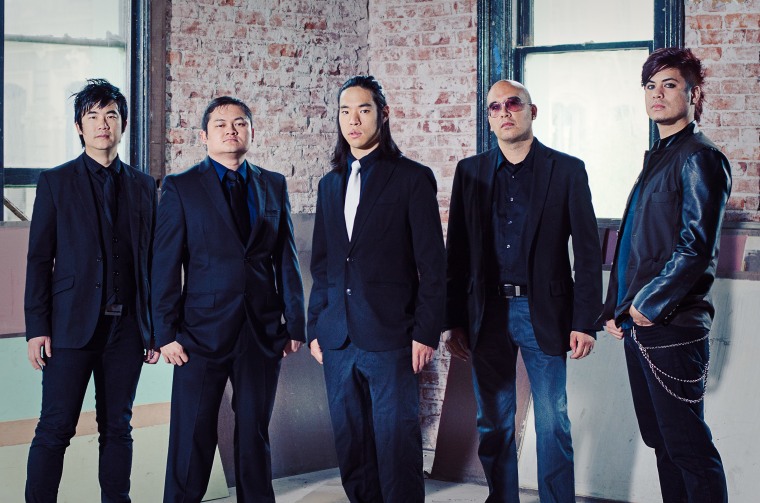An Asian-American rock band is continuing its ongoing fight to trademark a name that some see as disparaging.
The Slants appeared before a full en banc hearing in the U.S. Court of Appeals for the Federal Circuit in Washington, D.C on Friday, where the band's lawyer argued that the First Amendment should allow the band to trademark its name.
The band's fight was put in the spotlight last year after the U.S. Patent Office canceled the Washington NFL football team's trademark. But the leader of The Slants, Simon Tam, says his fight to take ownership of the band's name shouldn’t necessarily be linked with the fight over the use of the Washington team's name.
"The cost of free speech should not be paid for on the backs of our community."
“I don't think our case is intrinsically tied to theirs (nor should it be),” Tam said in an e-mail to NBC News. “They're working their way through the 4th Circuit whereas we're in the Federal Circuit, so it's very possible that the court will have a split decision, meaning the Supreme Court would probably have to address it.”
Tam said he hoped to prove that not only were free speech rights violated, but that trademark law was not consistent with other intellectual property law, including copyrights and patents.
“If we do prevail, it means that freedom of speech will be expanded--not only will commercial speech potentially count as a type of socio-political speech, but may mean that the U.S. Trademark would not be able to make restrictions based on content or view-based,” Tam said. “If that happens, the Washington Redskins, in addition to all of the small business owners, nonprofits, and artists of color are able to benefit as well.”

The broad scope of The Slants’ battle has divided some members of the Asian-American community, many of whom are in solidarity with Native American efforts to stop the Washington football team from trademarking its name, which many regard as a slur.
But Tam sees his fight as a necessary one for all marginalized peoples.
“If we win and it means there's a possibility or glimmer of hope of the team getting some of their registered trademarks back, it doesn't bother me,” Tam said. “The reality is that the law (Section 2a) disproportionately affects marginalized communities who don't have the resources to get dragged into a large, uphill legal battle. Laws should be written for those with the fewest options, not in fear of those who might abuse certain rights. The cost of free speech should not be paid for on the backs of our community.”
In spite of the legal battle to protect the name, The Slants continue to work creatively under its name.
The band is working on a new album and also producing a music video with the Oregon Nikkei Legacy Center to raise awareness of the history of the Japanese-American internment camp experience.